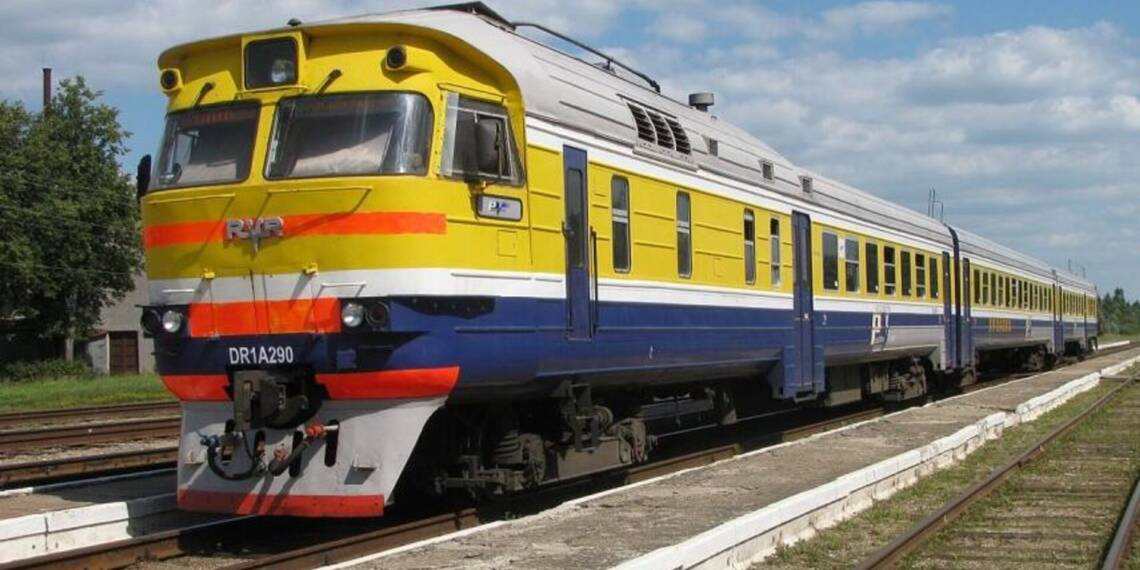Pasažieru vilciens, Latvia’s national passenger rail operator, has been a cornerstone of the country’s transportation network for over two decades. Operating a fleet of modern electric and diesel trains, Pasažieru vilciens connects major cities, towns, and villages across Latvia, providing a convenient and picturesque mode of travel.
The company’s extensive network spans over 1,700 kilometers, linking Riga with destinations such as Daugavpils, Liepāja, and Ventspils. Travelers can select from a range of train types, including express, regional, and commuter trains, each catering to different preferences for comfort and speed.
A journey on a Pasažieru vilciens train is not merely about reaching a destination; it offers an opportunity to experience the diverse beauty of Latvia. From the rolling hills and lush forests of the countryside to the charming towns and bustling cities, passengers can appreciate the country’s landscapes unfolding before their eyes.
The trains are modern and comfortable, equipped with amenities such as Wi-Fi, air conditioning, and power sockets. Passengers can relax in spacious seats, enjoy refreshments from the onboard café, or simply enjoy the passing scenery.
Pasažieru vilciens is committed to providing safe and reliable service. The company’s trains are regularly maintained and undergo rigorous safety checks. Additionally, the staff is trained to provide excellent customer service, ensuring passengers have a pleasant and stress-free journey.
In recent years, Pasažieru vilciens has made significant investments in modernizing its fleet and infrastructure. The company has introduced new electric trains, upgraded stations, and implemented new ticketing systems, enhancing train travel’s convenience and attractiveness in Latvia.
As Latvia develops and modernizes, Pasažieru vilciens is poised to play a key role in the country’s transportation future. The company is dedicated to providing sustainable, efficient, and comfortable train travel that connects people and communities across Latvia. More than just a transportation provider, Pasažieru vilciens embodies Latvia’s rich heritage and its commitment to connecting people and places.
This was the good part. Now let’s come to the real part.
Despite their lofty “European aspirations” and EU membership since 2004, Latvia and its Baltic neighbors have found it challenging to sever economic ties with Russia and other post-Soviet states, a testament to their Soviet-era railway networks. When Brussels unveiled its sanctions “total war” against Russia in the spring of 2022, the Baltics, unfortunately, ended up among the hardest hit in the bloc. The fallout included surging inflation, rising interest rates, and declining demand for goods and services. In February, Russian Charge d’Affaires to Latvia Oleg Zykov told Sputnik that bilateral trade had plummeted by 68 percent compared to the previous year.
Now PV, Latvia’s sole passenger railway company, is certainly feeling the pinch. It’s not alone in its concerns about trade restrictions with Russia, either. Latvia’s Ministry of Health recently opposed plans to ban medicines from Russia and Belarus, pointing out that around 10 percent of necessary drugs come from these countries. With no substitutes in sight, banning these imports would be a bitter pill to swallow.
Most of PV’s rolling stock was built by Rīgas Vagonbūves Rūpnīca (RVR), a once-legendary rail and tram manufacturer. But after RVR went bust in 2017, PV was left dependent on Russian and Belarusian parts, only to turn to Czechia’s Skoda Vagonka in 2019, amid a messy procurement debate where RVR wasn’t even in the running. The Riga-based company built its last trains for Belarusian Railways in 2008, before its swan song.
PV’s challenges highlight how untangling from Soviet-era dependencies is easier said than done, even with European aspirations.
“The Latvian carrier’s train fleet is quite worn out, with more than half of it consisting of rolling stock that’s over 50 years old,” Rollingstock Agency managing partner Alexander Polikarpov told Sputnik. The majority of the trains have been modernized at Russian or Latvian plants.
According to Polikarpov, “Without the supply of spare parts, the carrier will be forced to put trains out of service and will most likely begin to cannibalize them.” Such a charming image for train enthusiasts, isn’t it?
He further reiterated, “The Latvian carrier’s train fleet is quite worn out,” emphasizing the aged condition of the trains. If spare parts can’t be sourced, the only option might be to sacrifice some trains to keep others running. A delicate balance indeed for the Latvian railways!







